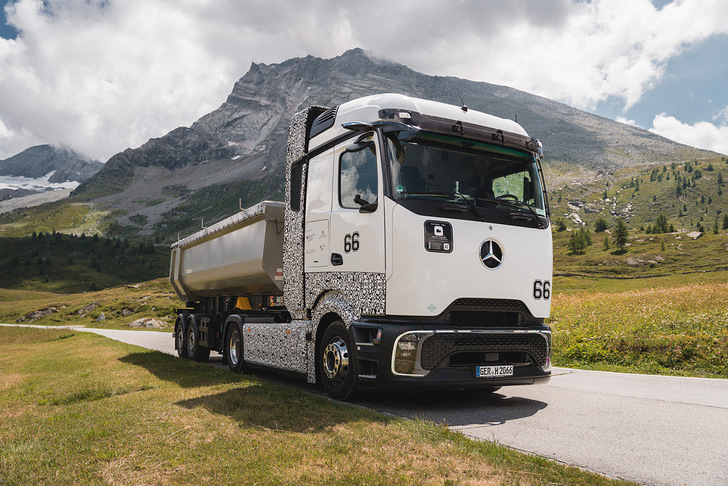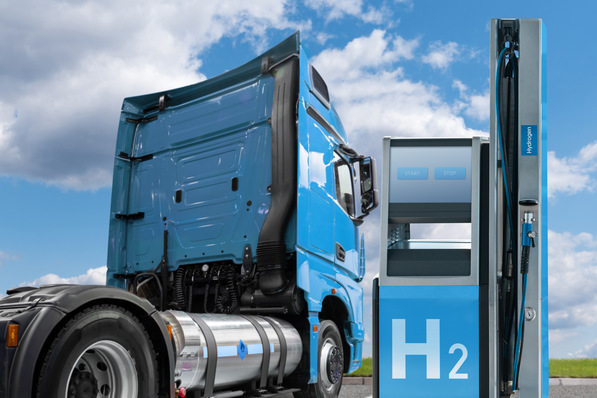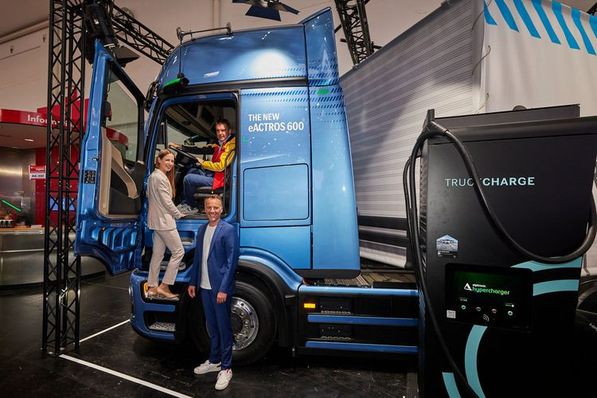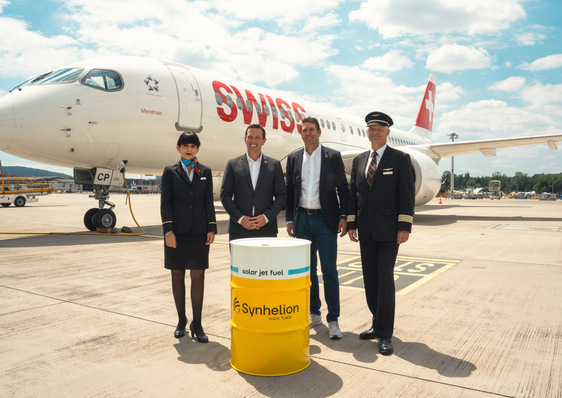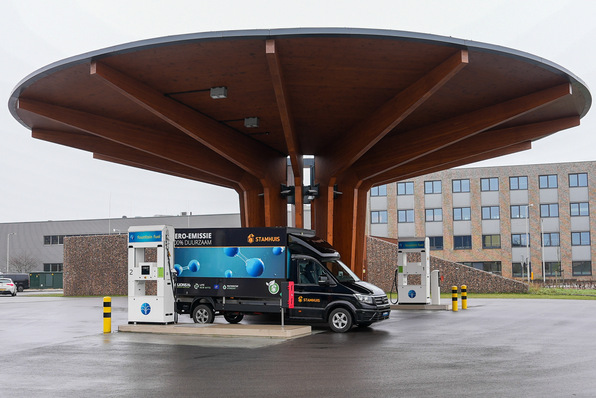The Daimler Group has started the second phase of practical testing of its Mercedes-Benz GenH2 Trucks. Five logistics companies – DHL Supply Chain, Hornbach, Reber Logistik, Teva Deutschland, and Rhenus – are each deploying a vehicle on their regular routes in Germany. The tests are set to run for a year and cover various logistics applications, including temperature-controlled transports, general cargo traffic, and long-distance transport.
300 kW power – liquid hydrogen as an energy carrier
The GenH2 Trucks in use are equipped with a fuel cell system with a continuous output of up to 300 kilowatts. This is supported by an additional battery that buffers peak loads and recovers braking energy. Liquid hydrogen (sLH₂) serves as the energy carrier, offering a higher energy density than gaseous hydrogen. This allows for greater ranges per tank filling.
The vehicles are refueled at liquid hydrogen filling stations in Wörth am Rhein and the Duisburg area. In the first test phase, five GenH2 Trucks covered over 225,000 kilometers together. Hydrogen consumption ranged between 5.6 and 8 kilograms per 100 kilometers, with a total train weight between 16 and 34 tons.
The partner companies bring different perspectives to the testing. DHL Supply Chain combines the GenH2 Truck with a fully electric refrigerated trailer for CO₂-free transport of fresh products. Hornbach uses the vehicle as part of its waste material liner fleet in long-distance transport. Teva Deutschland tests the truck in national pharmaceutical transport. Reber Logistik uses it regionally, as the refueling infrastructure is currently still limited. Rhenus tests the truck at its Duisburg location as part of its sustainability strategy in heavy-duty transport.
Small series already planned from 2026
In parallel with the ongoing testing, Daimler Truck is preparing the small series production of the GenH2 Trucks. From the end of 2026, around 100 vehicles are to be manufactured for customers at the Wörth plant and transferred into operation.
In the long term, Daimler Truck plans series production of hydrogen-powered trucks for the early 2030s. The company is pursuing a dual strategy with battery and hydrogen-electric drives. However, the expansion of the hydrogen refueling infrastructure is progressing more slowly than expected, which currently still limits the widespread use of the vehicles.


